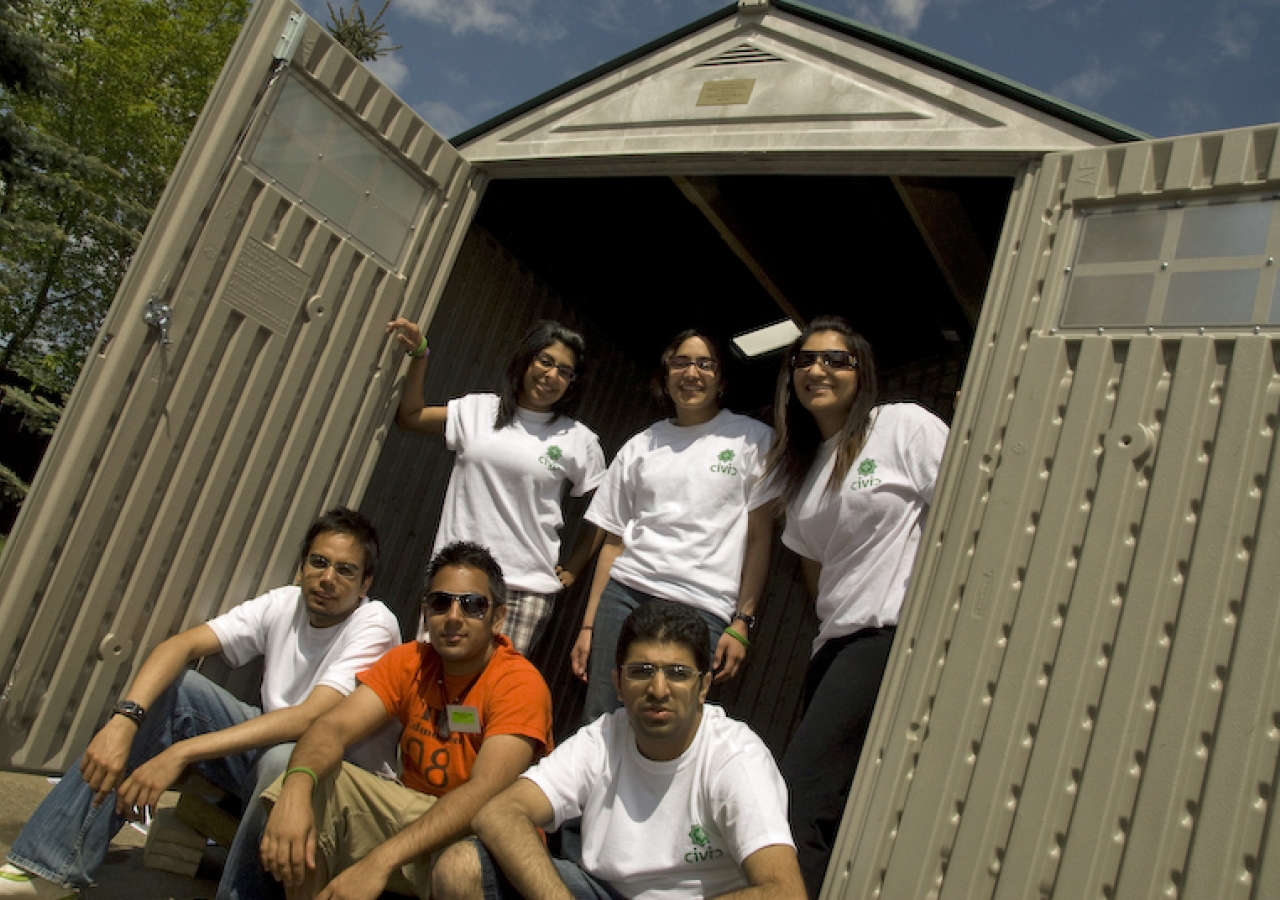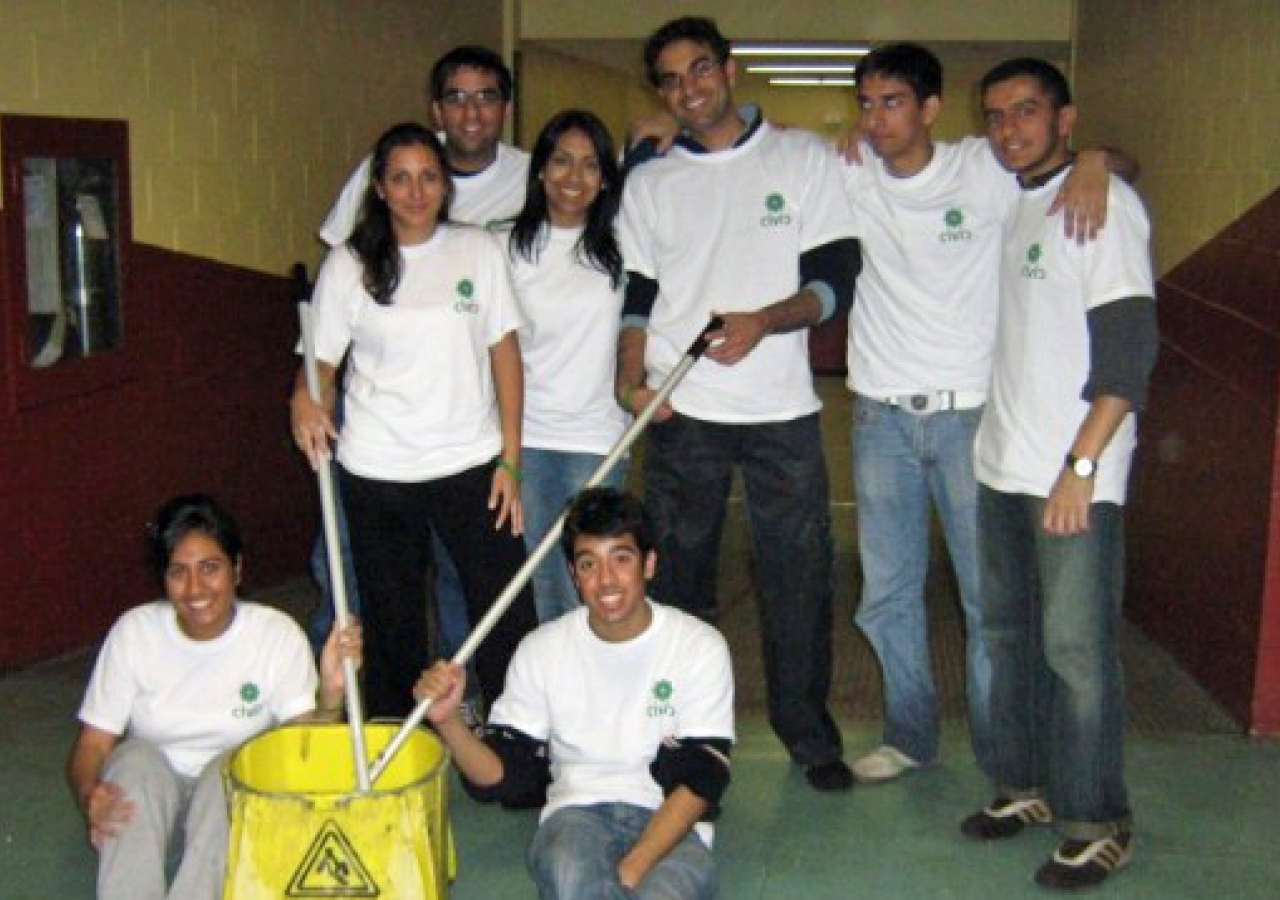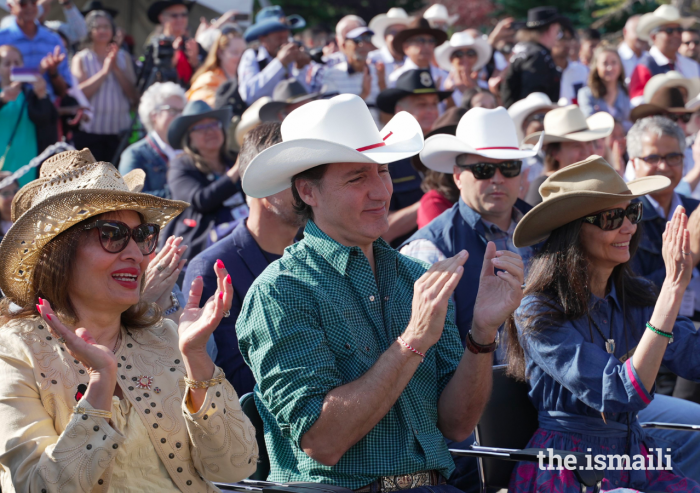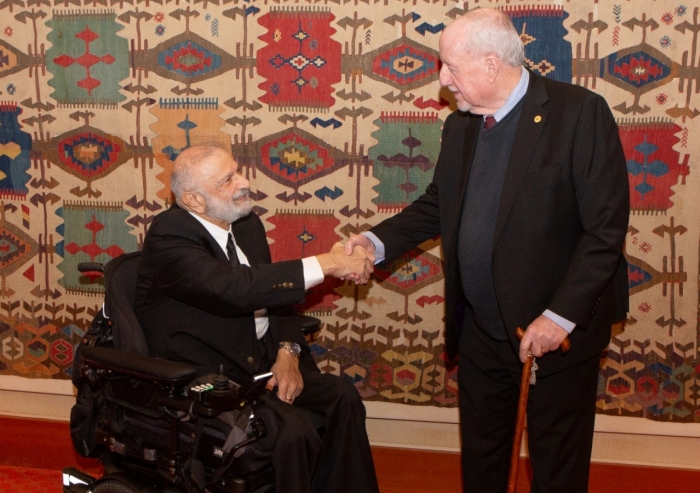The commemoration of Mawlana Hazar Imam's Golden Jubilee was an opportunity for Ismaili Muslims to come together in the spirit of voluntary service and contribute to the wellbeing of the communities where they reside. This was one of the underlying objectives of the CIVIC programme in Canada.
CIVIC – Challenging Ismaili Volunteers in Communities – was an initiative to engage Jamati youth aged 13 – 25. It appealed to the social conscience of young Ismailis by inviting them to give back to their local communities through voluntary service.
On designated CIVIC days across the country, more than 1 100 participants came together in their respective regions and contributed over 4 400 hours of voluntary service to designated projects. Community partners including mayors, municipal councillors, non-profit organisations, and other community representatives were present to support and acknowledge the work of the CIVIC teams and contributions they were making to society.
The ethic of voluntary service is a long-held tradition in the Jamat and pervades all aspects of life within the community. It has historically been a corner-stone of the value-system shared by Ismaili Muslims around the world. While CIVIC afforded an opportunity for members of the Jamat to collectively engage the broader community through service, the ethic of social consciousness inspires the engagement of the institutions of the Ismaili Imamat – notably the Imamat's non-denominational arm, the Aga Khan Development Network – in a multi-dimensional effort that promotes human development for the benefit of people irrespective of their faith and origin. A pillar of this engagement is the Jamat's tradition of offering contributions of time, knowledge and material resources.
The objectives of the programme were to allow youth to employ their time, skills and knowledge to stimulate positive changes, to build relationships with each other and the wider community and to commemorate the Golden Jubilee in a way that will benefit the social, cultural and economic development in Canada.
“Seeing more than 250 youth working hard was the most valuable experience,” says Shafina Jamal, a young professional and CIVIC participant from Edmonton. “The atmosphere was electric.”
The tremendous efforts of youth teams across Canada resulted in some impressive achievements. In British Columbia, teams planted 50 fruit trees to symbolise 50 years of Hazar Imam's Imamat. The trees will produce approximately one tonne of fruit that well be donated to shelters in downtown Vancouver. In the Prairies, CIVIC groups sorted through 350 bags of clothing that had been donated at the Calgary Drop-In & Rehab Centre. In Ontario, a half-tonne of garbage was collected from a city park, and in Quebec, youth worked to beautify eight schools, helping create a clean environment for students and staff.
After a year of careful planning, CIVIC Edmonton emerged as an example of a sustainable partnership among communities. Launched as a programme to build 20 sheds for Habitat for Humanity, the Edmonton initiative joined forces with the city's Capital City Clean Up programme. Edmonton's Ismaili youth worked alongside volunteers from the Sri Lankan and Punjabi communities to remove graffiti while raising funds for their shed project.
“The sheds are going to the neediest families in Edmonton,” noted Jamal, who served as a shed leader. “Poverty can be eliminated if we work together to help one family at a time.” In building the sheds and contributing to the clean up and revitalisation of the city's downtown core, CIVIC Edmonton grew into a multi-faceted civic engagement project and is working towards future activities.
Tameezan Mawani, the national project manager for CIVIC, said that “we wanted to create an education programme rooted in the work of Mawlana Hazar Imam's Institutions.” CIVIC's choice of activities was based on the ethical framework of the Aga Khan Development Network. By building local shelters, and cleaning city parks, participants contributed to environmental care, humanitarian assistance and poverty alleviation – all ethical imperatives that underpin the AKDN institutions.
Over the past four decades, Canada has welcomed Ismailis from around the world. CIVIC, Mawani points out, is one way in which the Canadian Jamat can give back to their country. It provided an opportunity for leaders of tomorrow to cultivate the spirit of voluntary service in the Jamat, and apply it in the broader context of Canadian civil society: “We hope that CIVIC will extend beyond the community and foster relationships with our fellow Canadians.”









